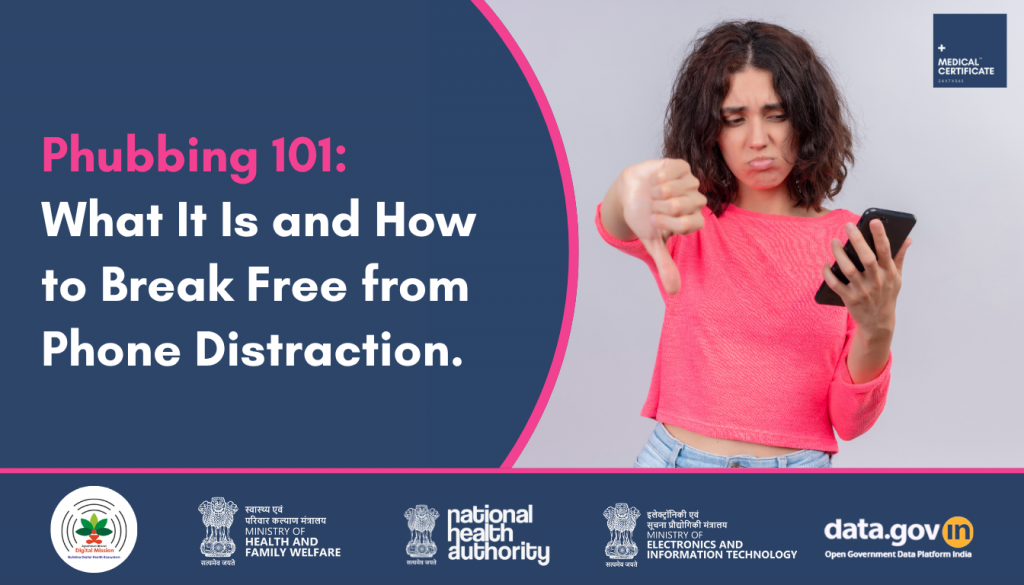Did you see that the person you’re chatting with is looking down at their phone during the conversation? If you’re with someone who’s always more interested in their phone than you, it’s a form of phubbing. I’m pretty sure we have all, at some time or another, engaged in racism, often without being aware of it.
Although people often do it without harming intentions, phubbing is now a big obstacle for building real relationships. Phubbing can ruin how we relate to others, change the quality of our dialogue and cause the person we’re talking to to feel undervalued. In due course, this simple action can cause a bit of emotional separation among friends, lovers and colleagues.
Since everyone uses smartphones, we always feel we’re connected, but that same technology can make being present optional. You need to first notice if you’re phubbing and what causes it. Creating boundaries for our devices and being with people in person helps us provide the attention relationships need. Even when surrounded by so much noise and crazy distractions, real connection remains the most valuable.
What is Phubbing?
The word phubbing is made from the combination of phone and snubbing. It’s about not paying attention to someone around you because you are looking at your phone.
In 2012, the expression was popularized by an Australian agency working on behalf of a dictionary. To explain a widely seen but often nameless feature of life nowadays.
What started as a clever portmanteau has now become a real social concern. Whether it’s in the middle of a dinner date, a meeting, or a quiet moment at home, phubbing disrupts human interaction in ways we’re only beginning to fully grasp.
Why Do We Phub?
On the surface, it’s simple enough to fault social media or constantly being “on.” But phubbing is more nuanced than that.
1. Fear of Missing Out (FOMO):
We all need to be constantly plugged into the internet, or else we’ll miss an important update, news headline, or group chat if we glance away for a second.
2. Digital Addiction:
Smartphones are made to engage us. Dopamine-reward feedback loops (i.e., texts, likes, buzzing) produce immediate emotional feedback and make it difficult to glance away. repeatedly.
3. Social Validation:
We use our screens for validation, approval, or escape — particularly while experiencing embarrassing social encounters. Ironically, this usually leaves us more lonely than comforted.
The Real Cost of Phubbing
Phubbing isn’t a big deal. But repeated and unchecked, it can creepily dissolve our most valuable relationships and our own well-being.
Psychological Impact
Not only does being phubbed sting as rudeness — it literally activates feelings of social rejection. Research has shown that being ignored for the sake of a phone can decrease self-esteem, raise anxiety levels, and even contribute to anxiety or depression.
Strained Relationships
In romantic relationships, phubbing on a regular basis lowers satisfaction and trust levels. Partners experience feeling second-class or emotionally discarded, creating more arguments with time.
Even between friends and relatives, being “half-heard” every day can create remoteness or resentment.
Breakdown of Communications
Phubbing not only destroys conversations — it remakes them. It reduces attention spans, results in half-baked discussions, and leaves both individuals unhappy.
Disconnect at Work
Yes, phubbing happens even at work — in meetings, one-on-ones, and even job interviews. Coworkers may feel disrespected or not cared for, and teamwork suffers when people are mentally elsewhere.
Managing and Minimizing Phubbing in Daily Life
We don’t have to put down our phones completely. But we do have to establish healthy boundaries. Here’s how to become more mindful:
1. Name It to Tame It
Self-awareness is where it begins. Many people don’t even know they’re phubbing — it’s just become a habit. Begin noticing when and where you find yourself most likely to grab your phone when you’re around other human beings.
2. Establish Phone-Free Zones
Establish phone rules: no phones at meals, in meetings, or when talking with your family. Set your phone face down or in another area during peak times.
3. Leverage Tech with Tech
Ironically, the answer can be the same technology that is distracting us. Employ screen time monitors, app blockers, or “focus modes” to limit unnecessary checking.
4. Ask, Don’t Assume
If the person is checking their phone when they are talking to you, don’t jump to conclusions. They might have something time-sensitive that they need to attend to. Rather than stewing in frustration, have the courtesy to ask if they need a moment. Open communication prevents tension.
5. Set the Example
We have to start with habits. If you give someone your undivided attention, they’re more likely to do the same back to you. As time goes on, you build a presence and respect culture.
Rebuilding Presence in a Digital Age
To control phubbing isn’t really about manners it’s about reclaiming the depth and richness of human interaction. As we live more and more in online spaces, presence is a gift we give each other a gentle way of saying, you matter more than this screen.
Let’s not shrink the people we love into background noise to a machine. Because when we really show up — with our eyes, our ears, and our attention that’s when relationships develop, understanding is built, and real communication starts.
Final Thought
The next time you’re with someone a fast coffee or an extended chat do make an effort to leave your phone in your pocket. You will be amazed at how different the conversation is, how much more aware the other person becomes, and how refreshed you feel just from being fully present.
Because at the end of the day, phubbing isn’t that much about phones — it’s about what matters. Let’s put people first.

